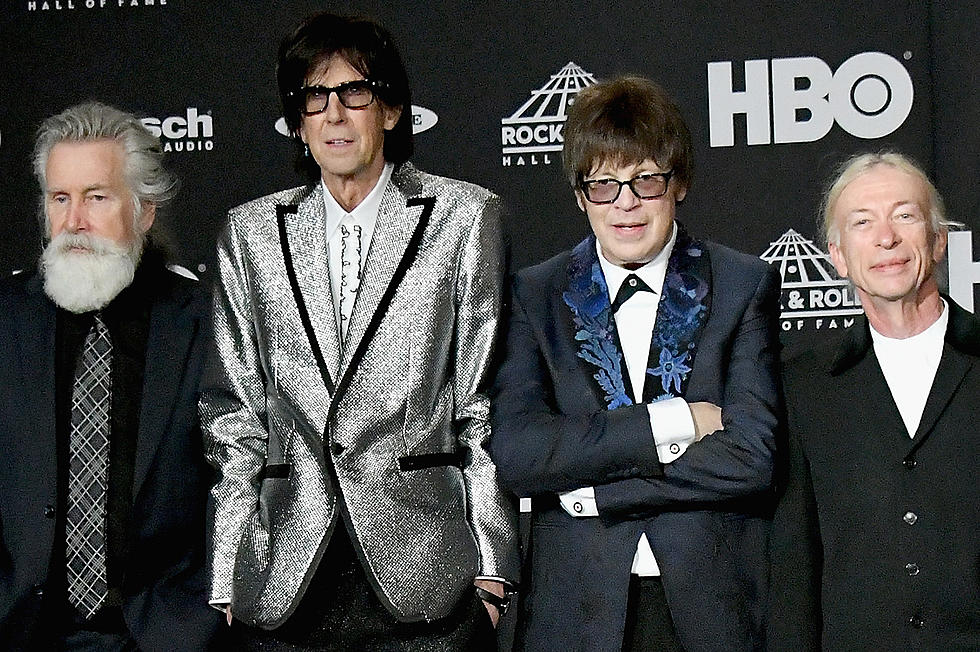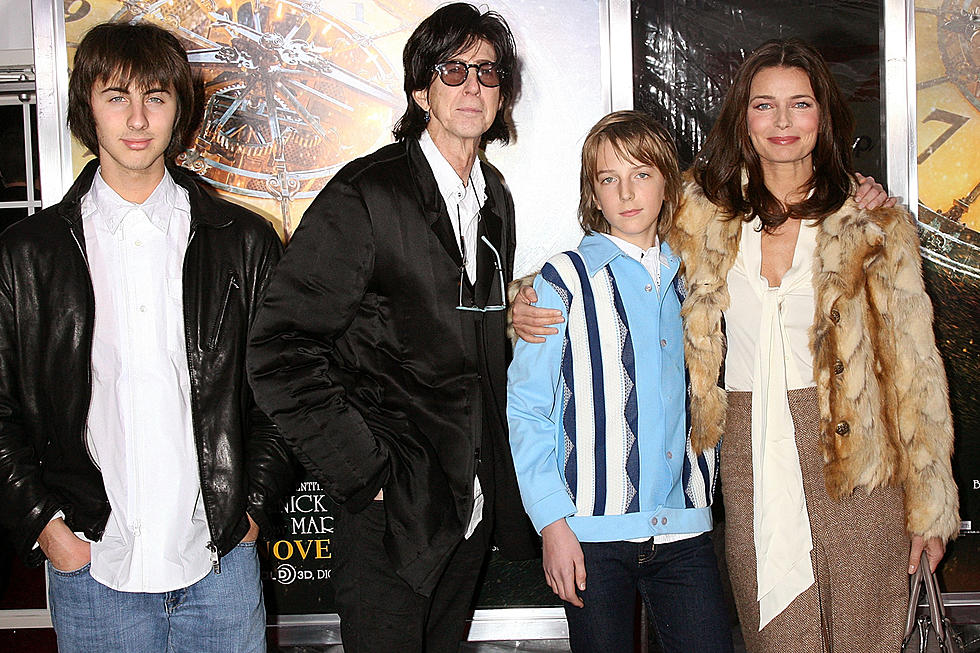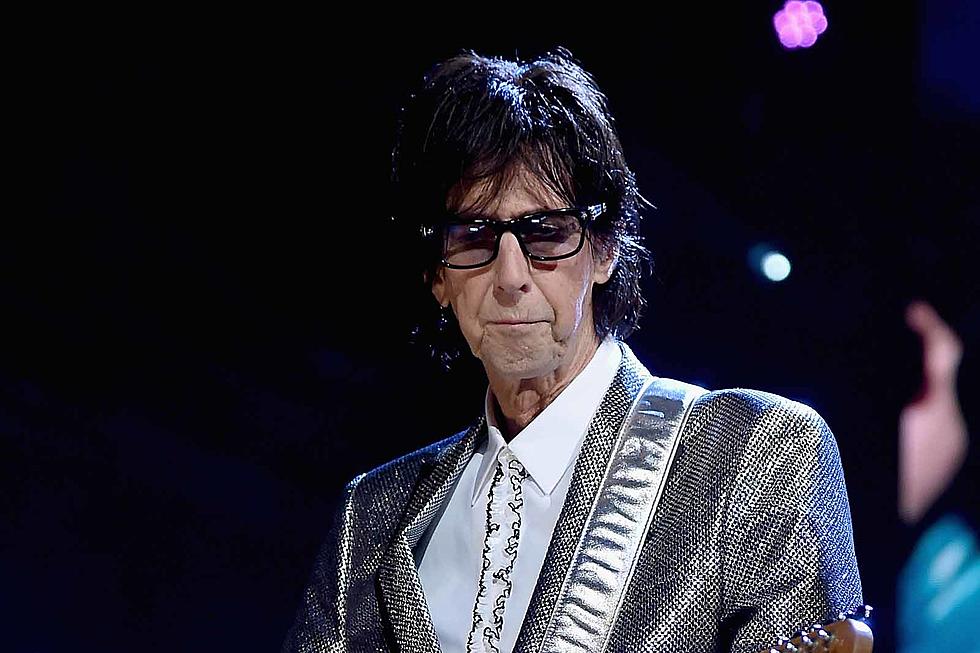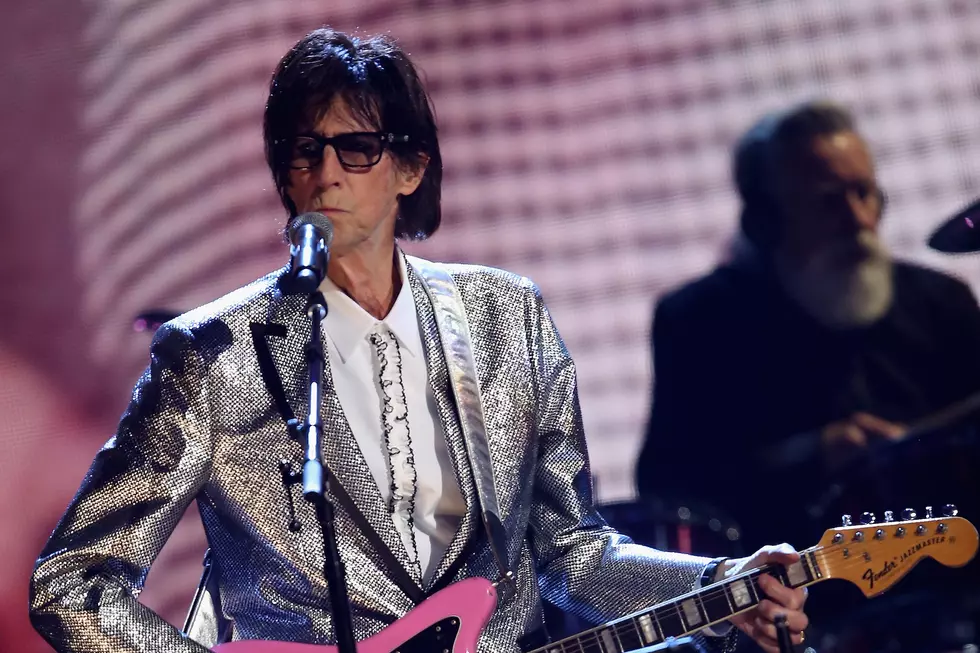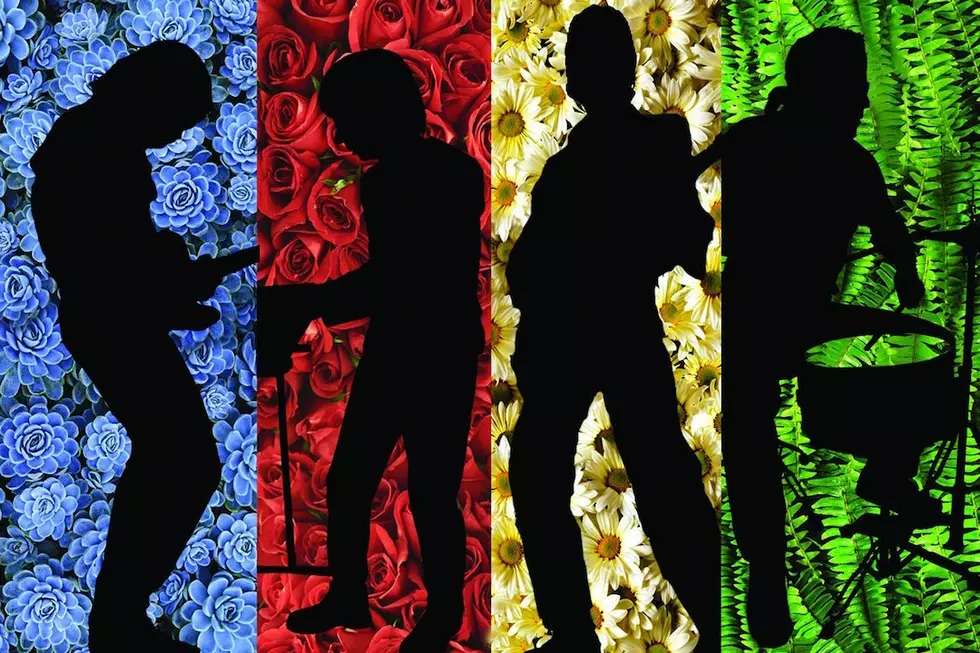
How the Cars Said Goodbye With ‘Move Like This’
You expected the Cars, reformed without their late bassist and singer Benjamin Orr, to come out with a sad song. But not a track called "Sad Song" that sounded anything but.
Instead, the lead single from Move Like This – which was released on May 10, 2011, as the band began a reunion tour – moved with a muscular attitude missing even from their best hit-making sides. That's not to say the Cars didn't sound like themselves. "Sad Song" boasted a spiked-up Elliot Easton guitar riff straight out of "Best Friend's Girl," then the zippy metronomic David Robinson rhythms that drove "Since You're Gone," followed by a swooping Heartbeat City-era wash from keyboard player Greg Hawkes. Singer Ric Ocasek, sounding not much worse for the wear, entered with the same detached cool that made "You Might Think" a staple on MTV back in the day.
But as Hawkes continued orchestrating this propulsive wall of New Wave sounds, there was an undercurrent of anxiety and loss on "Sad Song" – and, really, throughout Move Like This. It was hard-eyed, very modern: "Too many heartaches, waiting to strike," Ocasek blurted out in a pleasing hiccup. "Too many clowns, saying everything's all right." That determined tough-mindedness, as the chorus ("It's just a sad song and it won't take long") billows up, was something unexpected indeed.
Ocasek and company didn't just get back together, and didn't just come to terms with everything that happened before. With this album, the Cars definitively reclaimed their legacy from descendant acts like Bloc Party, Bravery and the Strokes – then, along the way, found a path to beginning again.
Not that this project started out as a homecoming. In fact, the late Ocasek argued back then that it was just the opposite. "It didn't have anything to do with, 'Well, I wrote these songs and they sound like Cars songs,'" he said. Instead, Ocasek found that he wanted musical input from "the people that I always loved and thought were the best at playing songs that I write."
He called the others, seemingly out of the blue, and the Cars – minus one key figure – were rolling again. "He said, 'I thought we would do a Cars album, if everybody wants to,'" Robinson told Rolling Stone. "The thing is, he could have said that at any time in the last 20 years. We would have responded the same way."
Watch the Cars' 'Blue Tip' Video
Then there was the sometimes deeply felt void left by Orr, who died in 2000 after a bout with cancer. It was, after all, the nifty balance of Ocasek's weirdo aloofness and Orr's sun-drenched pop warmth that made the Cars such an intriguing post-punk amalgam. They were New Wave, boasting all of the shiny quirks associated with the genre, but with a keen sense of musicality. That helped the Cars transcend that era's funny hair cuts and print pants, a recipe that was understandably harder to cook up on Move Like This.
Orr's absence, quite frankly, echoed across the album – even on "Sad Song," which could have used his feathered background vocals as a nest for that leaping chorus. Ocasek's cynical flippancy, as always, could start to wear thin. The ballads also cried out for his fallen singing partner's tender way with a lyric.
Move Like This furiously pushed back anyway, emerging as an edgier, more aggressive and consistently satisfying farewell. The Cars avoided the pitfalls of becoming a '80s curio, instead presenting themselves as a third-act rock band with something new to say. "Blue Tip" was tensile and itchy, as well as soaring and romantic — and that too showed the Cars, on their first record in 24 years, could build on everything that once made them platinum superstars. "Free" was flinty then tender, while "Hits Me" – the last of five tracks produced by Garret "Jacknife" Lee (Weezer, R.E.M., the Hives) – was governed by a pleasantly noir foreboding.
Even accounting for everything that nostalgia tells you wasn't there, Move Like This crackled with intensity, sounding uptempo yet fatalistically sensuous – and, quite frankly, better than it had any right to. "A lot of bands re-form, do stuff, and they're crap," Ocasek admitted to Rolling Stone. "I know this isn't crap. And the people are good – they always were. They might even be a little better."
For all of its plucky synth bounce, for all its nervy idiosyncrasies, for all of the ways it seemed like the Cars reemerged as if they never left, Move Like This was darker and far stranger than just about anything we ever heard from the original incarnation of this band. That seemed to be a nod both to the way the Cars' influence has played out in the music of those next-gen bands — "What can you do, you say," Ocasek chirps. "They owe me a few!" — but also to the one person who was missing.
The Cars, notably, didn't officially replace Orr. (Bass responsibilities were largely assumed by Hawkes.) They simply couldn't. Just as notably, despite the strength of the album, a subsequent tour was met with lukewarm reviews: In person, they simply couldn't escape what was no longer there.
Ocasek gamely tried to handle the onstage vocals for Orr vehicles like "Just What I Needed" and "Moving in Stereo," but the Cars simply stalled out. Ocasek then passed away in 2019, ending the group for good.
Bands That Reunited Without Their Lead Singer
More From Ultimate Classic Rock



